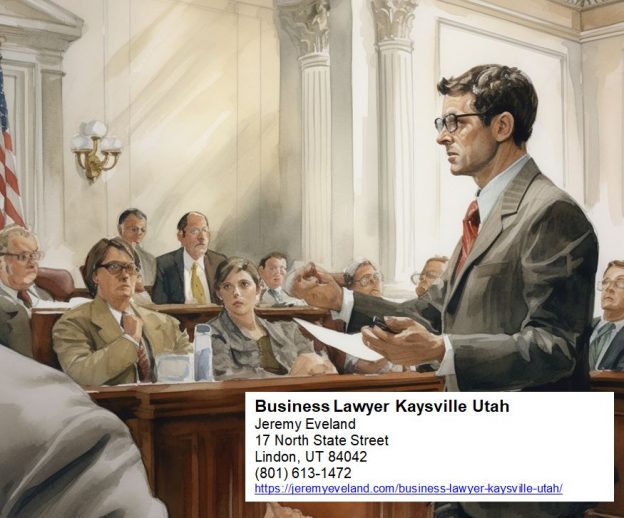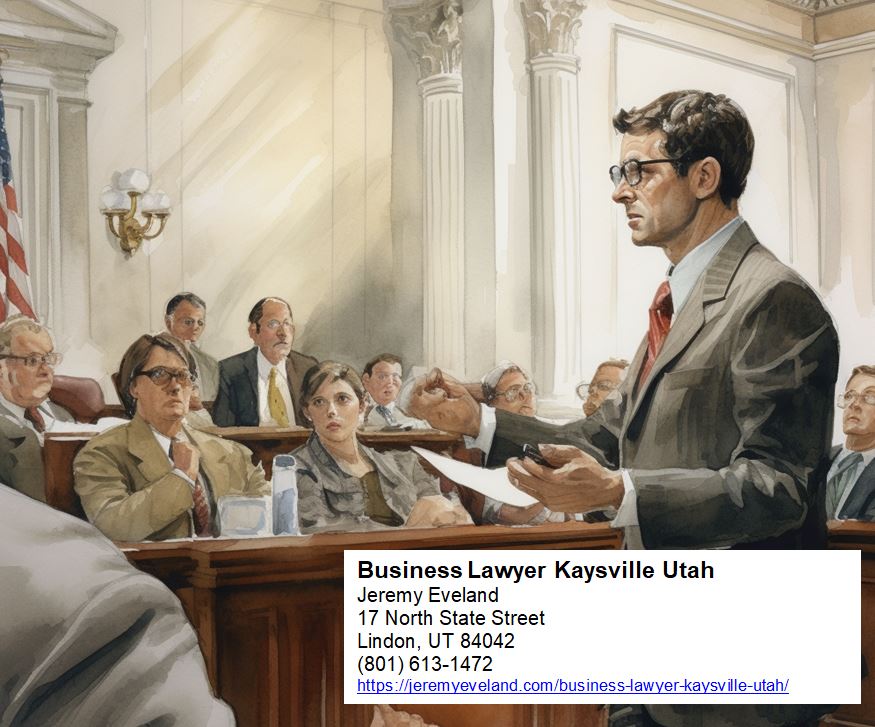If you have found yourself in a situation where you or a loved one is in need of legal assistance regarding conservatorship, you’ve come to the right place. This article aims to provide you with some context on the subject and guide you towards seeking the help you need. Whether you are facing challenges related to estate planning, guardianship, or financial management, taking the next step and calling the attorney listed on our website can lead you towards the support and guidance necessary for navigating conservatorship effectively. Don’t hesitate to reach out; our team is here to assist you promptly and professionally.

What is a Conservatorship?
A conservatorship is a legal arrangement in which a court-appointed individual, known as a conservator, is given the authority and responsibility to make important decisions for another person, known as the conservatee. This legal arrangement is typically used when the conservatee is unable to make decisions or care for themselves due to mental or physical incapacity.
Definition of Conservatorship
A conservatorship is a legal relationship where a conservator is appointed by a court to manage the personal affairs and financial matters of a conservatee who is unable to do so themselves. The conservator is granted legal authority and becomes responsible for making decisions on behalf of the conservatee, ensuring their well-being and protecting their interests.
Types of Conservatorship
There are different types of conservatorship, depending on the specific needs and circumstances of the conservatee. The two main types include:
-
Conservatorship of the Person: This type of conservatorship grants the conservator the authority to make personal and healthcare decisions for the conservatee. The conservator is responsible for ensuring the conservatee’s physical and emotional well-being, making medical decisions, and providing for their basic needs.
-
Conservatorship of the Estate: This type of conservatorship gives the conservator the authority to manage the conservatee’s financial affairs and assets. The conservator is responsible for handling the conservatee’s finances, paying bills, managing investments, and ensuring the conservatee’s financial security.
Who Can File for Conservatorship
Generally, anyone who is concerned about the well-being of an adult who is unable to care for themselves can file for conservatorship. Common filers include family members, friends, healthcare professionals, or interested parties who believe that the conservatee is unable to make decisions or manage their affairs effectively.
When is Conservatorship Necessary
Conservatorship is necessary when an individual is unable to make decisions or care for themselves due to mental or physical incapacity. This may be due to factors such as dementia, Alzheimer’s disease, developmental disabilities, severe mental illness, or physical injuries that result in cognitive impairments. In such cases, the conservatee may require assistance with managing their daily activities, healthcare decisions, and finances to ensure their well-being and protection.
The Process of Obtaining Conservatorship
Obtaining conservatorship involves several steps and requires going through the legal process. Here is a breakdown of the process:
Filing the Petition
To initiate the conservatorship process, a petition must be filed with the appropriate court. The petitioner, usually a concerned family member or friend, must provide detailed information about the conservatee’s condition and the reasons why conservatorship is necessary. The court will review the petition and determine whether there is sufficient evidence to proceed with the case.
Court Evaluation
Once the petition is filed, the court will appoint an evaluator, typically a qualified professional such as a psychiatrist or psychologist, to assess the conservatee. The evaluator will conduct interviews, review medical records, and perform any necessary assessments to determine the conservatee’s mental and physical capacity and their need for conservatorship. The evaluator’s report will be submitted to the court and will be considered in the decision-making process.
Notice and Hearing
After the evaluation, the court will schedule a hearing to review the conservatorship petition. Notice of the hearing must be given to all interested parties, including the conservatee and their family members. At the hearing, the petitioner will present their case, and interested parties will have the opportunity to express their concerns or objections. The court will then make a decision based on the evidence presented and the best interests of the conservatee.
Appointment of a Conservator
If the court determines that conservatorship is necessary and in the best interests of the conservatee, a conservator will be appointed. The court will consider the petitioner’s recommendations, but ultimately, the appointment will be based on the individual’s qualifications, ability to fulfill the duties of a conservator, and their willingness to take on the responsibility. Once appointed, the conservator will receive legal authority to act on behalf of the conservatee.
Click Here For More Information
Duties and Responsibilities of a Conservator
When appointed, a conservator has specific duties and responsibilities to ensure the well-being and best interests of the conservatee. These include:
Managing the Conservatee’s Finances
As a conservator of the estate, one of the primary duties is managing the financial affairs of the conservatee. This includes paying bills, managing investments, collecting income, and ensuring the conservatee’s financial resources are used appropriately to meet their needs. The conservator must keep accurate records of all financial transactions and provide periodic accounting to the court.
Making Healthcare Decisions
As a conservator of the person, the conservator has the authority to make medical and healthcare decisions on behalf of the conservatee. This includes consulting with healthcare professionals, giving consent for medical treatments or procedures, and ensuring the conservatee receives appropriate medical care and treatment. The conservator must consider the conservatee’s wishes, values, and best interests when making healthcare decisions.
Providing Basic Needs
A conservator is responsible for ensuring the conservatee’s basic needs are met. This includes providing food, clothing, and shelter, as well as arranging for appropriate living arrangements or care facilities if necessary. The conservator must ensure that the conservatee’s living conditions are safe, comfortable, and conducive to their well-being.
Reporting to the Court
A conservator is required to provide regular reports to the court regarding the conservatee’s status, well-being, and financial matters. These reports typically include information about the conservatee’s health, living conditions, medical treatments, financial transactions, and any significant changes or developments. The purpose of these reports is to keep the court informed and ensure that the conservator is fulfilling their duties responsibly.
Challenges and Disputes in Conservatorships
While conservatorships are intended to protect and support vulnerable individuals, disputes and challenges can arise. Some common challenges include:
Contesting a Conservatorship
Interested parties, such as family members or close friends, may contest a conservatorship if they disagree with the need for one or have concerns about the proposed conservator. They may argue that the conservatee is capable of making their own decisions or that there is a more suitable alternative to conservatorship. Contesting a conservatorship involves presenting evidence and arguments to the court, which will then make a decision based on the best interests of the conservatee.
Removal of a Conservator
In certain situations, the conservator’s performance or conduct may be called into question, leading to a request for their removal. This may occur if the conservator is mismanaging the conservatee’s finances, neglecting their basic needs, or making decisions that are not in the conservatee’s best interests. The court has the authority to remove a conservator if it finds sufficient cause or appoint a new conservator to replace them.
Elder Abuse
Unfortunately, conservatees are vulnerable to elder abuse, including physical, emotional, or financial abuse. It is essential for conservators to be vigilant and take proactive measures to protect the conservatee from any form of abuse. If abuse is suspected or reported, it should be immediately reported to the appropriate authorities for investigation and intervention.
Financial Exploitation
Conservatees with significant assets or financial resources may be at risk of financial exploitation. It is the conservator’s responsibility to diligently manage the conservatee’s finances, ensuring that they are protected from scams, fraud, or any unauthorized use of their assets. Regular financial monitoring, strong safeguards, and transparent accounting practices can help prevent financial exploitation.
Alternatives to Conservatorship
While conservatorship is a suitable option in many cases, there are alternative legal arrangements that can be considered, depending on the individual’s circumstances and level of incapacitation. Some common alternatives include:
Power of Attorney
A power of attorney is a legal document in which an individual grants another person the authority to make decisions on their behalf. This can include financial decisions, healthcare decisions, or both. A power of attorney is typically established when an individual is still capable of making decisions but wants to ensure that someone they trust can act on their behalf if they become incapacitated.
Healthcare Directive
A healthcare directive, also known as a living will or advance directive, is a legal document that outlines an individual’s wishes regarding medical treatment and end-of-life care. It provides guidance to healthcare providers and family members in making decisions on behalf of the individual if they become unable to communicate or make decisions themselves. A healthcare directive is often used in conjunction with a power of attorney for healthcare.
Trusts
A trust is a legal arrangement in which a person, known as the grantor, transfers assets to a trustee to hold and manage for the benefit of one or more beneficiaries. It allows for the management of assets and the distribution of income or property according to the grantor’s instructions. A trust can be structured to provide for the grantor’s needs and ensure that their assets are protected and managed appropriately.
Supported Decision-Making
Supported decision-making is an alternative to conservatorship that focuses on enabling individuals to make decisions with support from trusted individuals. Instead of having a conservator making decisions on their behalf, the individual works with a team of supporters who help them understand the options, gather information, and express their preferences. This approach aims to promote autonomy and independence while providing the necessary support for decision-making.
The Importance of Legal Representation in Conservatorship Matters
Due to the complexity and legal implications involved in conservatorship cases, it is crucial to seek the assistance of an experienced conservatorship attorney. Here are several reasons why legal representation is essential:
Understanding the Complexity of Conservatorship Cases
Conservatorship cases can be legally intricate, involving various statutes, regulations, and procedural requirements. An attorney who specializes in conservatorship matters has in-depth knowledge of the relevant laws and can provide valuable guidance throughout the process. They can explain the legal terminology, assist with document preparation, and ensure that all necessary steps are taken.
Navigating the Legal Process
Obtaining conservatorship requires navigating the legal process, including filing petitions, attending hearings, and providing evidence to support the case. An attorney can guide you through each step, ensuring that all legal requirements are met and deadlines are adhered to. Their expertise in the courtroom and familiarity with the local court rules can give you an advantage in presenting your case effectively.
Protecting the Rights of the Conservatee
A conservatorship is a serious legal arrangement that impacts the rights and personal autonomy of the conservatee. With legal representation, you can be confident that the conservatee’s rights will be protected throughout the process. An attorney can advocate for the conservatee’s best interests, ensuring that their wishes and preferences are considered and that the conservator acts in their best interests at all times.
Avoiding Costly Mistakes
Navigating the conservatorship process can be overwhelming, and even minor mistakes or omissions can have significant consequences. An experienced conservatorship attorney can help you avoid costly mistakes by providing guidance, reviewing documents, and ensuring that all legal requirements are met. They can also help you anticipate potential challenges or disputes and take proactive measures to address them effectively.

Frequently Asked Questions about Conservatorship
Here are answers to some common questions about conservatorship:
Who Can Serve as a Conservator?
A conservator can be a family member, friend, or qualified professional appointed by the court. The court will consider the conservatee’s best interests and the qualifications of the potential conservator when making the appointment.
How Long Does a Conservatorship Last?
The duration of a conservatorship depends on the conservatee’s needs and the court’s assessment. It can be temporary, lasting for a specific period, or permanent, remaining in place until the conservatee’s condition improves or they pass away. The court can also modify or terminate a conservatorship if there is sufficient evidence to do so.
Can a Conservator Be Removed?
Yes, a conservator can be removed if there are grounds to do so. This may include neglect or abuse of the conservatee, mismanagement of finances, or failure to fulfill their duties as a conservator. Interested parties can file a petition with the court to request the conservator’s removal.
How Does the Court Monitor Conservatorship Cases?
The court plays an important role in monitoring conservatorship cases to ensure that the conservatee’s best interests are being served. The court may require regular reports from the conservator, conduct periodic reviews or hearings, and appoint investigators or evaluators to assess the conservatee’s well-being. The court can also intervene if there are concerns or disputes regarding the conservatorship.
Costs and Fees Associated with Conservatorship
When pursuing conservatorship, it is important to consider the costs and fees involved. Some common expenses include:
Court Filing Fees
There are fees associated with filing the conservatorship petition and any subsequent documents with the court. The amount varies depending on the jurisdiction but can range from a few hundred dollars to several thousand dollars.
Legal Representation Costs
Hiring a conservatorship attorney is highly recommended, and their services come with associated costs. Attorneys typically charge an hourly fee or a flat fee for their services. The cost can vary based on factors such as the complexity of the case and the attorney’s experience and expertise.
Conservatorship Bond
In some cases, the court may require a conservator to obtain a bond to provide financial protection for the conservatee’s assets. The bond is a form of insurance that covers any losses resulting from the conservator’s mismanagement or misuse of the conservatee’s funds. The cost of the bond is typically based on a percentage of the value of the conservatee’s assets.
Accounting and Reporting Expenses
Conservators are required to keep accurate records and provide periodic accounting to the court. Depending on the complexity of the conservatee’s finances, additional expenses may be incurred for professional accounting services to ensure compliance with legal requirements.

Seeking Legal Assistance for Conservatorship Matters
If you are considering conservatorship or have concerns about an existing conservatorship, it is important to seek legal assistance promptly. An experienced conservatorship attorney can guide you through the process, protect the conservatee’s rights, and help you navigate any challenges or disputes that may arise.
Contacting an Experienced Conservatorship Attorney
To begin, contact an experienced conservatorship attorney in your area. They will be able to provide you with the necessary guidance and support to navigate the conservatorship process successfully.
Initial Consultation
During the initial consultation, you will have the opportunity to discuss your specific situation and concerns with the attorney. They will assess the merits of your case, provide information about the legal process, and offer guidance on the best course of action.
Case Evaluation
After the initial consultation, the attorney will conduct a thorough evaluation of your case. They will review any relevant documentation, gather additional information if needed, and develop a comprehensive understanding of the facts and circumstances surrounding the conservatorship.
Legal Strategy and Representation
Based on the case evaluation, the attorney will develop a legal strategy tailored to your specific needs and goals. They will provide you with ongoing representation throughout the conservatorship process, advocating for your best interests and ensuring that all legal requirements are met.
Conclusion
Conservatorship is a legal arrangement that provides support and protection for individuals who are unable to make decisions or care for themselves. It involves a court-appointed conservator who assumes the responsibility of managing the conservatee’s personal affairs, healthcare decisions, and finances. While conservatorship can be complex and involve various challenges, seeking legal assistance from an experienced conservatorship attorney is crucial to navigate the legal process, protect the conservatee’s rights, and ensure the best possible outcome. If you are considering conservatorship or need assistance with an existing conservatorship, reach out to a qualified attorney to obtain the guidance and support you need.


